The History Book Club discussion

This topic is about
Enemies
AMERICAN DEMOCRACY - GOVERNMENT
>
ENEMIES: A HISTORY OF THE FBI - GLOSSARY ~ (SPOILER THREAD)
 Viola Liuzzo:
Viola Liuzzo: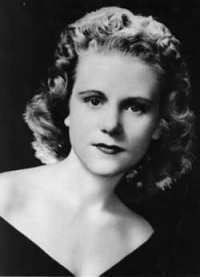
Viola Fauver Gregg Liuzzo (April 11, 1925-March 25, 1965), a Unitarian Universalist committed to work for education and economic justice, gave her life for the cause of civil rights. The 39-year-old mother of five was murdered by white supremacists after her participation in the protest march from Selma to Montgomery, Alabama.
Viola was born on April 11, 1925, in California, Pennsylvania. Her father, Heber Ernest Gregg, of Scottish, Irish and Native American descent, was once a mineworker, but lost his job when he lost his hand in an accident. Her mother, Eva Wilson Gregg, of German and English descent, was a teacher. The family, moving several times, lived in Tennessee and Georgia and perhaps other parts of the South. Viola grew up in poverty and in the midst of racial segregation, discrimination and hatred. At age six, when her mother was manager of a small Georgia grocery store, Viola took money from the cash register and gave it to a black child whose family was even poorer than her own.
During the early months of World War II, Heber Gregg moved his family to Ypsilanti, Michigan so that he could work at a bomber factory. Shortly afterward, inspired by posters depicting Rosie the Riveter, Viola moved to Detroit to look for war work. At work in a cafeteria, she met George Argyris whom she married in early 1943. (She had been married once before—for only a day—at age 16.) A week after the wedding, she met Sarah Evans, an African American woman who became her closest friend. The two had much in common, including childhood in the South. Viola gave birth to two daughters, Penny and Evangeline Mary, in 1946 and 1947. Evans cared for the children while Viola worked as a waitress.
In 1949 George and Viola divorced. Two years later she married Anthony James Liuzzo, a union organizer for the Teamsters. They had three children: Tommy, born in 1951, Anthony, Jr. in 1955, and Sally in 1958. Jim legally adopted Penny and Mary, children of Viola's previous marriage, in 1956. Evans worked as the Liuzzo family's full-time nanny and housekeeper.
At age 35 Liuzzo, a high school dropout, trained for a career as a medical laboratory assistant at the Carnegie Institute of Detroit, 1961-62. In 1963, to further enhance her education, she enrolled in classes at Wayne State University.
Liuzzo was also active in local efforts on behalf of reform in education and economic justice. Twice she was arrested, pleaded guilty, and insisted on a trial to publicize the causes for which she was an advocate. Evans said of her friend, "Viola Liuzzo lived a life that combined the care of her family and her home with a concern for the world around her. This involvement with her times was not always understood by her friends; nor was it appreciated by those around her."
In 1964 Liuzzo began attending the First Unitarian Universalist Church of Detroit, two blocks from the Wayne State campus, and, through Evans, became active in the Detroit chapter of the National Association for the Advancement of Colored People (NAACP). That same year Evans and Liuzzo drove to New York City to attend a United Nations Seminar on civil rights sponsored by the Unitarian Universalist Association (UUA).
Liuzzo's spiritual journey included putting hands to work. Unchurched as a child, she had converted to Roman Catholicism when she married Jim. Drawn to Roman Catholic mysticism for a time, she was later interested in Protestant evangelicalism. She sought personal relationship with a God active in the events of human history and herself wanted to make a difference in the world. At First Unitarian Universalist Liuzzo found a faith matching both her ideas and her longing to be of service. She became a full member on March 29, 1964. Many members of the church had been Freedom Riders. Daughter Penny attended the young adult group's discussions.
In late February, 1965, Jimmy Lee Jackson, a young African-American, was fatally wounded by police following a voter rights demonstration in Marion, Alabama. In response the Rev. Martin Luther King, Jr. organized a march of protest from Selma to the State capitol in Montgomery. On March 7, "Bloody Sunday," 500 peaceful and prayerful marchers were attacked and dispersed by Alabama State Troopers with billyclubs and gas grenades. King then called for any and all persons to come to Selma. His telegram to clergy all across the United States, and subsequent events, brought one hundred Unitarian Universalist ministers to Selma. Among the earliest to arrive was Rev. James Reeb, who was attacked on the street by a group of whites on March 9 and died two days later.
Liuzzo, with millions of other Americans, had seen on television the horror happening in the South. On March 8 she decided to go to Selma. Shortly afterward, she attended a memorial at First Unitarian Universalist for the Rev. Reeb. On March 16, after participating with daughter Penny and 250 Wayne students in a Selma sympathy march, Liuzzo called her husband and told him there were "too many people who just stand around talking," that she had to help, and that she was going to Selma for a week. She asked Evans to explain to her children where their mother had gone and to tell them she would call home every night. Evans warned that she could be killed. Liuzzo replied simply, "I want to be part of it."
The drive to Selma took three days. Liuzzo presented herself at the Roy Brown African Methodist Episcopal Church, "Brown Chapel," and volunteered to work with the Southern Christian Leadership Conference (SCLC). She was asked to serve at the hospitality desk, welcoming and registering other volunteers. On Sunday, March 21, she joined 3,000 other marchers as, five abreast, they marched across the Pettus Bridge, the site of Bloody Sunday, and began the trek towards Montgomery. On Monday and Tuesday she continued her work at Brown Chapel's registration desk and also made shuttle runs from the airport to the marchers' campsite. Afterward she served at the campsite's first-aid station.
On March 24 Liuzzo stayed overnight at St. Jude's, a complex of buildings including a Catholic Church, hospital and school, just inside the Montgomery city limits. From the church tower she watched the approach of 25,000 marchers. When she came down from the tower, unsettled and anxious, she told Timothy Deasy, one of the parish priests, "Father, I have a feeling of apprehension. Something is going to happen today. Someone is going to be killed."
Calmer after prayer, she joined the marchers, barefoot, for the last four miles to the capitol building in Montgomery. With everyone else she sang freedom songs and listened to the speeches. When the march was over, Liuzzo met civil rights worker Leroy Moton, who had been using her car all day as an airport shuttle. The two of them drove five passengers back to Selma. When they were dropped off, Viola volunteered to return Moton to Montgomery.
Viola's biographer, Mary Stanton, describes the ride to Selma. "Between the airport and Selma a car full of whites drove up behind them and banged into the bumper of the Oldsmobile several times before passing . . . When they stopped for gas, Moton remembered, white bystanders shouted insults at the integrated group. Further along, the driver of another car turned on his high beams and left them shining into Vi's rearview mirror. 'Two can play at that game,' she said and deliberately slowed up, making the offending car pass her. Finally, when another car pulled up alongside the Oldsmobile while one in front slowed down, Vi had to jam on her brakes. They were boxed in, one of the passengers remembers, but Mrs. Liuzzo seemed to be more annoyed than afraid. As they drove along Highway 80, Vi began singing freedom songs: 'And long before I'll be a slave I'll be buried in my grave and go home to my Lord and be free.'"
Gary Thomas Rowe was a Federal Bureau of Investigation (FBI) informant and a member of the Klux Klan (KKK). According to his court testimony, events transpired as follows. After the passengers were delivered, he and three other members of a KKK "missionary squad"—Collie Leroy Wilkins, Jr., William Orville Eaton, and Eugene Thomas—spotted Liuzzo and Moton stopped at a traffic light in Selma. They followed her car for twenty miles. While she attempted to outrun her pursuers, she sang at the top of her lungs, "We Shall Overcome." About half way between Selma and Montgomery the four men pulled their car up next to hers and shot at her. Liuzzo was killed instantly. Her car rolled into a ditch. Moton escaped injury.
Jim Liuzzo learned of his wife's death at midnight. The following day President Lyndon Johnson called Jim to say, "I don't think she died in vain because this is going to be a battle, all out as far as I'm concerned." Jim told the President, "My wife died for a sacred battle, the rights of humanity. She had one concern and only one in mind. She took a quote from Abraham Lincoln that all men are created equal and that's the way she believed."
On March 27 a group of about 200 protesters, black and white, led by the Rev. James Orange of the SCLC marched to the Dallas County courthouse in Selma. The Rev. James Bevel told them, "[Viola Liuzzo] gave her life that freedom might be saved throughout this land." On March 28, at San Francisco's Grace Episcopal Cathedral, Martin Luther King said of Liuzzo, "If physical death is the price some must pay to save us and our white brothers from eternal death of the spirit, then no sacrifice could be more redemptive."
On March 29 the NAACP sponsored a memorial service for Liuzzo at the People's Community Church in Detroit. Fifteen hundred people attended, among them, Rosa Parks. On March 30 at the Immaculate Heart of Mary Roman Catholic Church in Detroit a high requiem mass was celebrated for Liuzzo. Dr. King was among the 750 people attending the televised service. Some Catholics protested the mass, citing Liuzzo's divorce. Father Deasy said. "I felt very strongly about this woman and her goodness. She inspired us all. Her energy, enthusiasm and compassion were contagious and put many of us to shame."
On April 5 the Wayne Friends of SNCC sponsored a memorial service for Liuzzo in the Community Arts Auditorium at Wayne State University.
After these tributes, attempts were made to discredit Liuzzo. Entirely false rumors spread that she was a member of the Communist party and that she had traveled to Selma to have sexual relations with men in the Civil Rights movement. No one of the four KKK members was convicted of murder. Rowe testified for the prosecution and thus received immunity. The other three were eventually given ten-year sentences, under federal law, for violation of Liuzzo's civil rights. From 1979-83 the Liuzzo children tried through legal action, unsuccessfully, to get the FBI to acknowledge complicity in the death of their mother.
(Source: http://www25.uua.org/uuhs/duub/articl...)
More:
http://en.wikipedia.org/wiki/Viola_Li...
http://www.encyclopediaofalabama.org/...
http://vault.fbi.gov/Viola%20Liuzzo/
 Juan Bosch:
Juan Bosch: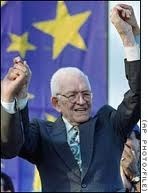
Dominican writer, scholar, and politician elected president of the Dominican Republic in 1962 but deposed less than a year later.
More:
http://en.wikipedia.org/wiki/Juan_Bosch
http://www.britannica.com/EBchecked/t...
 Jaoquin Balaguer:
Jaoquin Balaguer: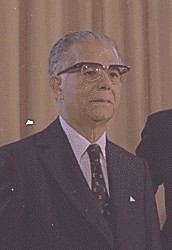
lawyer, writer, and diplomat who was vice president of the Dominican Republic (1957–60) during the regime of President Hector Trujillo and was president from 1960 to 1962, 1966 to 1978, and from 1986 to 1996.
More:
http://www.britannica.com/EBchecked/t...
http://en.wikipedia.org/wiki/Joaqu%C3...
http://www.nytimes.com/2002/07/15/wor...
 Robert McNamara:
Robert McNamara:
Robert Strange McNamara was born in San Francisco, California, on June 9, 1916, to Robert James McNamara, a wholesale shoe industry executive, and Clara Nell NcNamara. He was educated in public schools before going on to receive a B.A. from the University of California, Berkeley; he earned an M.B.A. from Harvard Business School in 1939.
McNamara spent a year working for Price Waterhouse and Company before returning to Harvard to teach at the Business School from 1940 to 1943. While at Harvard, he also instructed Army Air Corps officers in statistical techniques and war management. He later went to England to aide the Air Corps with efforts to support bombing operations.
He continued to support the war effort through his statistical and management efforts. Following the close of hostilities, McNamara returned to the United States and joined a group of young military officers, later called the "whiz kids," who helped turn around the financially troubled Ford Motor Company. McNamara served as general manager and vice president of Ford's automotive division during the 1950s and in 1960 became the first man outside the Ford family to be named president of the Ford Motor Company. Later that year, President-elect John Kennedy asked McNamara to join his cabinet, despite the latter being a registered Republican.
McNamara became the secretary of defense in January 1961. In that post, he brought the military under greater and more centralized civilian control. In doing so, he enlarged his staff and moved to centralize decision-making authority. McNamara also created the Defense Intelligence Agency to assess intelligence operations of all three military branches. In addition, he established the Defense Supply Agency to standardize the purchasing of items between the three military branches.
McNamara also helped to develop the policies of "second strike capability" and "flexible response." Later, during the Lyndon Johnson administration, McNamara became the prime architect of America's strategy in Vietnam, believing that the build up of conventional forces as a part of "flexible response" capability would enable the military to deal more effectively with communist guerrillas. Vietnam became an all-consuming preoccupation during the Johnson years, however, leading McNamara, in 1968, to leave office as secretary of defense.
He became president of the World Bank the following year, a post he held until 1981. McNamara remained active with nonprofit groups such as the Ford Foundation, the Brookings Institution, and the Barbara Ward Fund. He also continued to work independently on issues such as the threat of nuclear arms, the population explosion, world hunger, East-West relations, and the anti-Apartheid movement in South Africa.
(Source: http://millercenter.org/president/lbj...)
More:
http://en.wikipedia.org/wiki/Robert_M...
http://www.lbjlib.utexas.edu/johnson/...
http://whitehousetapes.net/exhibit/fo...
 Robert S. McNamara
Robert S. McNamara Deborah Shapley
Deborah Shapley
 McGeorge Bundy:
McGeorge Bundy:
After serving in U. S. Army intelligence during World War II, McGeorge Bundy worked as an assistant to former Secretary of War, Henry L. Stimson. Though he considered himself a Republican, then Harvard Dean of Faculty, Mr. Bundy was disillusioned with 1960 Republican candidate Richard Nixon, and organized support for Kennedy among academics and scientists. Bundy was appointed Special Assistant to the President for National Security in 1961. He was considered one of the "best and brightest" of President Kennedy's circle of advisors and cabinet members. Following President Kennedy's assassination, Mr. Bundy stayed on as President Johnson's National Security Adviser, and was best known for his role as a supporter of the American military effort in Vietnam. He resigned in 1966 to become President of the Ford Foundation.
(Source: http://www.jfklibrary.org/Research/Re...)
More:
http://en.wikipedia.org/wiki/McGeorge...
 Thomas C. Mann:
Thomas C. Mann: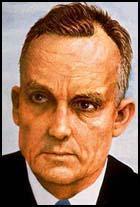
was a diplomat who specialized in Latin American affairs while employed by the U.S. Department of State from 1942 to 1966.
More:
http://www.spartacus.schoolnet.co.uk/...
http://en.wikipedia.org/wiki/Thomas_C...
 George Ball:
George Ball:[image error]
As undersecretary of state (1961–66) under Presidents Kennedy and Johnson, George W. Ball achieved his greatest prominence as the highest‐ranking U.S. official to oppose, consistently but unsuccessfully, the decisions to increase the American military role during the Vietnam War.
President Kennedy appointed him assistant secretary of state for economic affairs in 1961. After the Bay of Pigs disaster, Ball was promoted to undersecretary of state. He took issue with the Taylor‐Rostow mission in 1961, which advocated the introduction of U.S. combat troops into Vietnam. Ball saw the United States becoming involved in a revolutionary war with little hope of eventual success; he argued that U.S. military resources were better deployed in Europe.
(Source: http://www.answers.com/topic/george-b...)
More:
http://en.wikipedia.org/wiki/George_B...
 William Raborn:
William Raborn: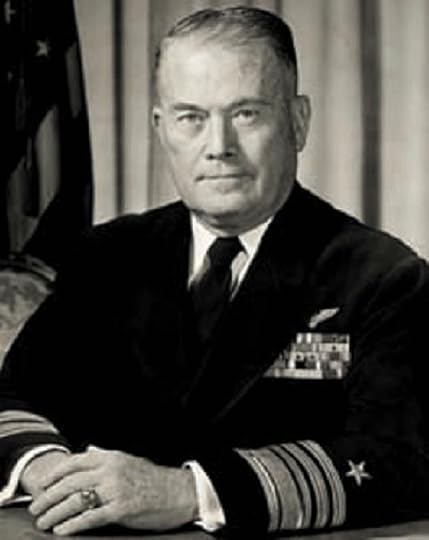
was a United States Navy officer, the leader of the project to develop the Polaris missile system, and the 7th Director of Central Intelligence as well as the 5th Director of the Central Intelligence Agency.
More:
http://en.wikipedia.org/wiki/William_...
https://www.cia.gov/library/center-fo...
 Richard Helms:
Richard Helms: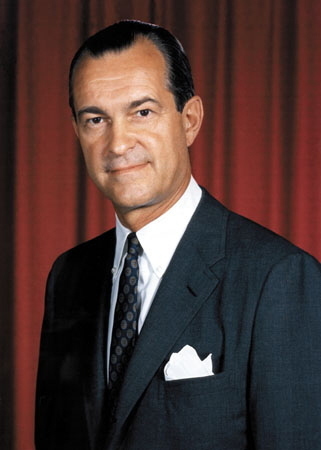
was the Director of Central Intelligence (DCI), June 1966 to February 1973. He began intelligence work with the Office of Strategic Services during World War II. Following the 1947 creation of the Central Intelligence Agency (CIA) he slowly rose in its ranks during the Eisenhower and Kennedy administrations. Helms favored information gathering and its analysis, and counterintelligence, but remained skeptical about covert operations. He might express strong opinions about a decision under review, yet he was a 'team player' and the President had the final say. While DCI Helms improved the management of the agency. As an indirect result of undercover operations in Chile, he was the only DCI to be convicted of lying to Congress.
More:
http://en.wikipedia.org/wiki/Richard_...
https://www.cia.gov/library/center-fo...
http://www.spartacus.schoolnet.co.uk/...
http://www.nytimes.com/2002/10/24/us/...
 Abe Fortas:
Abe Fortas:
was born in Memphis, Tennessee, on June 19, 1910. He was graduated from Southwestern College (now Rhodes University) in 1930 and from Yale University Law School in 1933. After graduation, Fortas taught law at Yale for one year. From 1934 to 1939, he held a series of positions in the newly created Securities and Exchange Commission. In 1939 he became General Counsel to the Public Works Administration. In 1941, Fortas was appointed director of the division of power in the Department of the Interior, and one year later was named Under Secretary. Following World War II, Fortas and two associates established a law partnership in Washington, D.C., specializing in corporate law. After two decades of private practice, Fortas was appointed by President Lyndon B. Johnson to the Supreme Court of the United States on August 11, 1965. The Senate confirmed the appointment on October 4, 1965. Fortas served on the Supreme Court for three years. He resigned on May 14, 1969, and returned to private practice. He died on April 5, 1982, at the age of seventy-one.
(Source: http://www.supremecourthistory.org/hi...)
More:
http://en.wikipedia.org/wiki/Abe_Fortas
http://www.spartacus.schoolnet.co.uk/...
http://vault.fbi.gov/abe-fortas/
 Nicholas Katzenbach:
Nicholas Katzenbach:
Nicholas deBelleville Katzenbach was born on January 17, 1922, in Philadelphia, Pennsylvania. Katzenbach attended Princeton University, graduating in 1945, and he received his law degree from Yale Law School in 1947. Katzenbach also received a Rhodes scholarship and studied at Oxford University for two years.
Returning to the United States, Katzenbach accepted teaching positions first at Yale and then the University of Chicago Law School. He continued teaching until 1960. In 1961, he was appointed assistant attorney general in charge of the justice department's Office of Legal Counsel. In April 1962, he was promoted to deputy attorney general, the second highest position in the department. Katzenbach would be involved in the drafting of the Communications Satellite Act of 1962 and the Kennedy administration's foreign trade program.
He was also involved in securing the release of prisoners captured during the Bay of Pigs raid on Cuba. Katzenbach took an active role in the Justice Department's fight for civil rights, overseeing departmental operations in desegregating the University of Mississippi in September 1962 and the University of Alabama in June 1963. He also worked with Congress to ensure the passage of the 1964 Civil Rights Act.
Katzenbach, at Robert Kennedy's suggestion, was named attorney general on January 28, 1965. In April 1965, after knowledge of a wiretap on Martin Luther King was made public, Katzenbach ordered an end to the tap and continued his support for civil rights. He acquired a federal court order prohibiting state officials from interfering with the Selma to Montgomery civil rights marchers and drafted the voting rights bill proposed by the Johnson administration.
Katzenbach worked to enforce the bill and defend its constitutionality before the Supreme Court in January 1966. He then played an integral role in the drafting of the Johnson administration's civil rights bill in 1966, as well as the administration's anticrime proposal in March of the same year.
In July 1965, he was chosen to head the presidential Commission on Law Enforcement and the Administration of Justice. He ran into difficulties, however, with FBI director J. Edgar Hoover over a mail-opening operation and unauthorized wiretaps of Martin Luther King's hotel rooms.
Katzenbach resigned in 1966, stating "he could no longer effectively serve as attorney general because of Mr. Hoover's obvious resentment of me." President Johnson then appointed him undersecretary of state on September 21, 1966. In that capacity, Katzenbach went on fact-finding missions to South Vietnam in 1966 and 1967. He also headed diplomatic trips in Africa, India, and Western and Eastern Europe.
Johnson also appointed Katzenbach to a three-member commission charged with reviewing CIA activities, including the agency's questionable use of funds. Following the commission's report, President Johnson prohibited the use of covert government aid for private educational, philanthropic, and cultural organizations. Katzenbach resigned as undersecretary in November 1968 but agreed to stay on in the State Department during the transfer of power following Nixon's election. In 1969, Katzenbach became vice president and general counsel of International Business Machines Corporation.
(Source: http://millercenter.org/president/lbj...)
More:
http://en.wikipedia.org/wiki/Nicholas...
http://www.washingtonpost.com/nationa...
http://www.justice.gov/ag/aghistpage....
 Students for Democratic Society (SDS):
Students for Democratic Society (SDS):was a student activist movement in the United States that was one of the main iconic representations of the country's New Left. The organization developed and expanded rapidly in the mid-1960s before dissolving at its last convention in 1969. A faction of SDS formed the Weather Underground, identified by the Federal Bureau of Investigation (FBI) as a "domestic terrorist group.
More:
http://en.wikipedia.org/wiki/Students...
http://www.sds-1960s.org/
http://www.pbs.org/opb/thesixties/top...
 Ramsay Clark:
Ramsay Clark: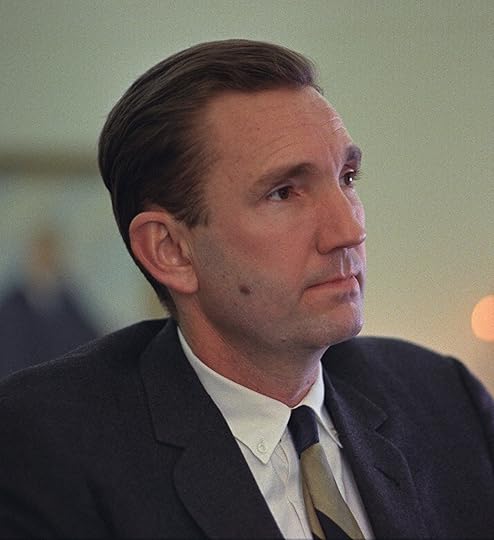
William Ramsey Clark was born on December 18, 1927, in Dallas, Texas, the son of former attorney general and Supreme Court justice Tom C. Clark. He attended the University of Texas, receiving his B.A. in 1949, and then earned his M.A. in history and a law degree from the University of Chicago in 1950. He went on to practice law in Dallas.
In 1961, Clark was appointed U.S. assistant attorney general in charge of the Lands Division. He cut in half the backlog of thirty-two thousand pending cases while simultaneously cutting the staff and budget. After the court ordered the integration of the University of Mississippi in 1962, Clark led federal civilian forces there and then worked with other schools throughout the South, demonstrating his commitment to civil rights.
Clark was promoted to deputy attorney general on February 13, 1965. helping to draft the 1965 Voting Rights Act and coordinating forces sent to aid desegregation at the University of Alabama and the civil rights march from Selma to Montgomery.
When Nicholas Katzenbach resigned as head of the department on October 3, 1966, Clark became acting attorney general. He took over the justice department formally on February 28, 1967. His confirmation led his father to resign from the Supreme Court in order to avoid the suspicion of any conflict of interest. During his stint as attorney general, Clark was involved in drafting the administration's civil rights proposals and helped to ensure passage of the 1968 Civil Rights Act.
After the assassination of Martin Luther King Jr., Clark established a commission to study all government activities regarding Reverend King. He also made it a priority to fight organized crime. As a step in this fight, he initiated "strike forces," or groups composed of attorneys and workers from important government agencies that worked closely together to combat crime. Another Clark initiative was the combining of several government agencies into a centralized Bureau of Narcotics and Dangerous Drugs.
Clark was also a proponent of more gun-control legislation and of putting more importance on rehabilitation efforts in federal prisons. When the controversy over FBI eavesdropping arose, Clark initiated new guidelines restricting the use of wiretaps and electronic eavesdropping devices by federal agencies. In 1967, as a result of riots throughout the nation, Clark created the Interdivisional Information Unit as a part of the Justice Department.
When he left government service in January 1969, Clark joined a New York City law firm and became a loud opponent of the Vietnam War. Clark defended Reverend Philip F. Berrigan and five others indicted on charges of conspiring to kidnap Secretary of State Henry Kissinger and of blowing up heating systems in federal buildings throughout Washington D.C.
Clark was also a part of a controversial investigative team that traveled to Hanoi to look into charges that America took aim at nonmilitary targets during its bombing raids over North Vietnam. In 1974, he won the Democratic primary for the U.S. Senate seat from New York, refusing to accept campaign contributions over $100. Despite winning the primary, Clark lost the general election.
(Source: http://millercenter.org/president/lbj...)
More:
http://en.wikipedia.org/wiki/Ramsey_C...
http://www.justice.gov/enrd/4774.htm
http://www.justice.gov/ag/aghistpage....
 Anna Chennault:
Anna Chennault: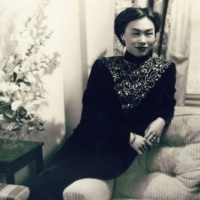
Anna Chennault was a renowned author, lecturer, businesswoman, and citizen-diplomat. At the end of World War II, Anna Chen was living as a young journalist in China when she met, married, and moved to the United States with General Claire Lee Chennault. After her husband’s death in 1958, she became increasingly active in business and politics, and several administrations enlisted Chennault’s help in facilitating negotiations with China and other Asian countries.
(Source: http://www.radcliffe.harvard.edu/schl...)
More:
http://en.wikipedia.org/wiki/Anna_Che...
http://app1.chinadaily.com.cn/star/20...
 Last evening I attended an open event by the Greensboro, NC Preservation Society (not Historical Society) to a showcase house that has been renovated and is now up for sale. The home build in 1914 was in the 1970’s owned by Dr. James Waller, a medical doctor, who was president of the local textile workers association and a leader in the Communist Workers Party. On November 3, 1979 Dr. Waller and four other Communist leaders were shot to death during a rally in Greensboro, by members of the Ku Klux Klan.
Last evening I attended an open event by the Greensboro, NC Preservation Society (not Historical Society) to a showcase house that has been renovated and is now up for sale. The home build in 1914 was in the 1970’s owned by Dr. James Waller, a medical doctor, who was president of the local textile workers association and a leader in the Communist Workers Party. On November 3, 1979 Dr. Waller and four other Communist leaders were shot to death during a rally in Greensboro, by members of the Ku Klux Klan.Upstairs there was a partially hidden walk in closest that was used by Dr. Waller to print Communist propaganda for distribution. Still visible along the walls in the closet were some pasted Communist posters.
 Interesting, Mark. If he was active in the 1960s, he probably was on the FBI list for an illegal wire-tap.
Interesting, Mark. If he was active in the 1960s, he probably was on the FBI list for an illegal wire-tap.
 H.R. Halderman:
H.R. Halderman:
H.R. "Bob" Haldeman, Nixon's chief of staff, spent 18 months in prison for his role in Watergate. A former advertising executive, Haldeman had a stern reputation as Nixon's gatekeeper and once called himself "the president's son-of-a-bitch."
(Source: http://www.washingtonpost.com/wp-srv/...)
More:
http://en.wikipedia.org/wiki/H._R._Ha...
http://www.spartacus.schoolnet.co.uk/...
 John Ehrlichman:
John Ehrlichman:
President Nixon's assistant for domestic affairs, John D. Ehrlichman, directed the White House "plumbers" unit. He also approved the break-in at the office of the psychiatrist of Daniel Ellsberg, the defense analyst who leaked the Pentagon Papers to the press. Ehrlichman resigned from his White House post in 1973; he was convicted of conspiracy to obstruct justice and perjury in the Watergate case and of conspiracy in the Ellsberg case.
Ehrlichman served 18 months in prison after unsuccessfully trying to negotiate a sentence under which he would provide legal service to Native Americans. After his release, Ehrlichman lived in New Mexico and wrote novels and a memoir, "Witness to Power: The Nixon Years" (1982). He moved to Atlanta in 1991, becoming a business consultant and continuing to write. In 1996, an Atlanta gallery displayed 43 of Ehrlichman's pen-and-ink drawings from the Watergate era.
Ehrlichman died in his home in Atlanta on Feb. 14, 1999 at the age of 73.
(Source: http://www.washingtonpost.com/wp-srv/...)
More:
http://en.wikipedia.org/wiki/John_Ehr...
http://vault.fbi.gov/John%20Ehrlichman
http://www.spartacus.schoolnet.co.uk/...
 John D. Ehrlich
John D. Ehrlich
 John Mitchell:
John Mitchell: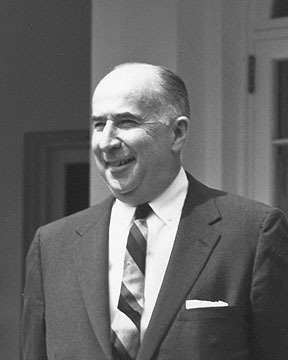
John N. Mitchell was born September 15, 1913. He served in the U.S. Navy during WWII and received the Silver Star for gallantry. Mitchell was attorney general in the Nixon administration (1969-1972), and was a key figure in the Watergate scandal; he would served 19 months in prison for his role in Watergate. Mitchell died November 9, 1988, and was buried at Arlington National Cemetery with full military honors.
(Source: http://millercenter.org/president/nix...)
More:
http://www.washingtonpost.com/wp-srv/...
http://en.wikipedia.org/wiki/John_N._...
http://www.justice.gov/ag/aghistpage....
http://www.washingtonpost.com/wp-srv/...
 Henry Kissinger:
Henry Kissinger: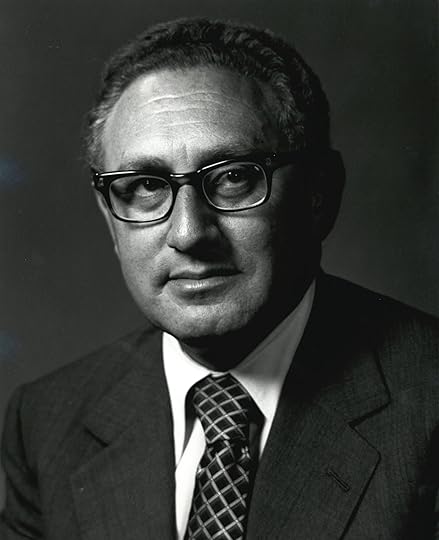
Henry Alfred Kissinger was sworn in on September 22, 1973, as the 56th Secretary of State, a position he held until January 20, 1977. He also served as Assistant to the President for National Security Affairs from January 20, 1969, until November 3, 1975. In July 1983 he was appointed by President Reagan to chair the National Bipartisan Commission on Central America until it ceased operation in January 1985, and from 1984-1990 he served as a member of the President's Foreign Intelligence Advisory Board. From 1986-1988 he was a member of the Commission on Integrated Long-Term Strategy of the National Security Council and Defense Department. He is currently a member of the Defense Policy Board.
At present, Dr. Kissinger is Chairman of Kissinger Associates, Inc., an international consulting firm. He is also a member of the International Council of J.P. Morgan Chase & Co.; a Counselor to and Trustee of the Center for Strategic and International Studies; an Honorary Governor of the Foreign Policy Association; and an Honor Member of the International Olympic Committee. Among his other activities, Dr. Kissinger is a member of the Board of Directors of ContiGroup Companies, Inc. and an Advisor to the Board of Directors of American Express Company. He is also a member of the Advisory Board of Forstmann Little and Co.; a Trustee Emeritus of the Metropolitan Museum of Art; a Director Emeritus of Freeport-McMoRan Copper and Gold Inc.; Chairman Emeritus of the Eisenhower Fellowships; and a Director of the International Rescue Committee.
Among the awards Dr. Kissinger has received have been the Nobel Peace Prize in 1973; the Presidential Medal of Freedom (the nation's highest civilian award) in 1977; and the Medal of Liberty (given one time to ten foreign-born American leaders) in 1986.
Dr. Kissinger was born in Fuerth, Germany, came to the United States in 1938 and was naturalized a United States citizen in 1943. He served in the Army from 1943 to 1946. He graduated summa cum laude from Harvard College in 1950 and received M.A. and Ph.D. degrees from Harvard University in 1952 and 1954.
From 1954 until 1969 he was a member of the faculty of Harvard University, in both the Department of Government and the Center for International Affairs. He was Director of the Harvard International Seminar from 1952 to 1969.
Dr. Kissinger is the author of numerous books.
He has also published numerous articles on United States foreign policy, international affairs and diplomatic history. His column, syndicated by Tribune Media Services International, appears in leading newspapers in the U.S. and abroad.
Dr. Kissinger is married to the former Nancy Maginnes and is the father of two children by a previous marriage.
(Source: http://www.henryakissinger.com/biogra...)
More:
http://en.wikipedia.org/wiki/Henry_Ki...
http://www.nobelprize.org/nobel_prize...
 Richard C. Thorton
Richard C. Thorton
 Henry Kissinger
Henry Kissinger
 Walter Isaacson
Walter Isaacson Robert Dallek
Robert Dallek
 Al Haig:
Al Haig:
General Alexander Meigs Haig was born December 2, 1924, and graduated from West Point in 1947. He then served in the Korean War (1950-1951) and was military assistant to the secretary of the Army (1964). He also served in Vietnam from 1966 to 1967.
Haig was a military adviser to National Security Advisor Henry Kissinger from 1969 to 1973 and was on the staff of the National Security Council. He was eventually made a four-star general in the U.S. Army and held the role of Supreme Allied Commander Europe (SACEUR), commanding all NATO forces from 1974 to 1979.
President Ronald Reagan named Haig secretary of state, and Haig held that position from the outset of the Reagan administration until his resignation in May 1982. He ran unsuccessfully against Vice President George Bush for the Republican nomination for President (1988).
(Source: http://millercenter.org/president/rea...)
More:
http://en.wikipedia.org/wiki/Alexande...
http://whitehousetapes.net/exhibit/al...
 Weather Underground:
Weather Underground:Initially formed as a splinter group which believed that peaceful protests were ineffective, the Weathermen were widely criticized for their use of violence as a means of social and political change. Some accused the group of terrorism, while others accused it of giving all activists, both militant and more mainstream, a bad name.
(Source: http://www.pbs.org/independentlens/we...)
More:
http://en.wikipedia.org/wiki/Weather_...
 John Dean:
John Dean: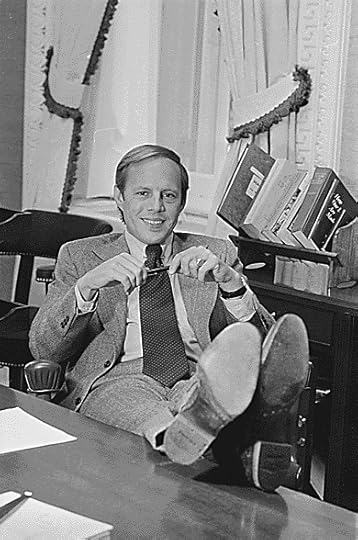
White House counsel from 1970-1973.
Former White House counsel John W. Dean III was charged with obstruction of justice and spent four months in prison for his role in the Watergate cover-up. Now an investment banker in Beverly Hills, Dean is the author of the Watergate memoirs "Blind Ambition" and "Lost Honor, " as well as a book on Supreme Court Chief Justice William Rehnquist.
Dean's wife, Maureen, wrote her own memoir -- "Mo: A Woman's View of Watergate." The former financial consultant for Shearson-Lehman Bros. also penned two Washington novels, "Washington Wives" and "Capitol Secrets."
The Deans are at the center of Watergate conspiracy theories that sound as if they came from a steamy Washington novel. They filed a lawsuit prompted by the published allegations about them. The 1991 book "Silent Coup: The Removal of a President" suggested that John Dean masterminded the Watergate burglary to obtain documents linking Maureen and her roommate to an alleged prostitution ring. "It's all nonsense," says John M.Garrick, the couple's lawyer.
The Deans sued "Silent Coup's" authors and two sources, G. Gordon Liddy and Phillip M. Bailey. Garrick said court approval is pending for an undisclosed settlement between the Deans and St. Martin's Press, the book's publisher.
Dean currently lives in Beverly Hills, Calif. with his wife, where he works as a writer, lecturer, and private investment banker. He has also written a screenplay, "Pentagon Papers," which he sold to Turner Television.
(Source: http://www.washingtonpost.com/wp-srv/...)
More:
http://en.wikipedia.org/wiki/John_Dean
http://www.spartacus.schoolnet.co.uk/...
 John Dean
John Dean
 Black Liberation Army:
Black Liberation Army:was an underground, black nationalist militant organization that operated in the United States from 1970 to 1981. Composed largely of former Black Panthers (BPP), the organization's program was one of "armed struggle"
More:
http://en.wikipedia.org/wiki/Black_Li...
 Pentagon Papers:
Pentagon Papers:is a United States Department of Defense history of the United States' political-military involvement in Vietnam from 1945 to 1967. The papers were first brought to the attention of the public on the front page of the New York Times in 1971
More:
http://en.wikipedia.org/wiki/Pentagon...
http://www.archives.gov/research/pent...
 Daniel Ellsberg:
Daniel Ellsberg: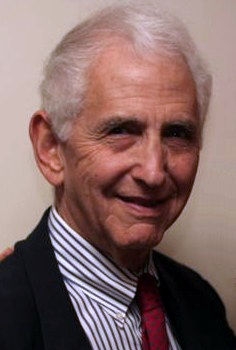
Born in Chicago in 1931, military strategist Daniel Ellsberg helped strengthen public opposition to the Vietnam War in 1971 by leaking secret documents known as the Pentagon Papers to the New York Times. The documents contained evidence that the U.S. government had misled the public regarding U.S. involvement in the war.
(Source: http://www.biography.com/people/danie...)
More:
http://en.wikipedia.org/wiki/Daniel_E...
http://www.ellsberg.net/bio

 Daniel Ellsberg
Daniel Ellsberg
 White House Plumbers:
White House Plumbers:The White House Plumbers, sometimes simply called the Plumbers, were a covert White House Special Investigations Unit established July 24, 1971 during the presidency of Richard Nixon. Its task was to stop the leaking of classified information to the news media. Its members branched into illegal activities working for the Committee to Re-elect the President, including the Watergate break-in and the ensuing Watergate scandal.
http://en.wikipedia.org/wiki/White_Ho...
http://www.fordlibrarymuseum.gov/muse...
 G. Gordon Liddy:
G. Gordon Liddy: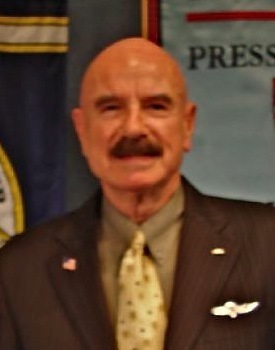
The former FBI agent who helped plan the Watergate break-in capitalized on his Watergate legend and took his political views to the airwaves. Gordon Liddy's conservative radio talk show, "The G. Gordon Liddy Show," was broadcast on 232 stations nationwide. He has written the novels "The Monkey Handlers" and "Out of Control" and an autobiography, "Will," which became a best-seller. He is also an actor in motion pictures and television.
Liddy has been known to support a conspiracy theory that the Watergate break-in was a means of covering up a call-girl ring run out of the Democratic National Committee headquarters. The theory got him involved in a defamation lawsuit filed by Ida "Maxie" Wells, a former DNC headquarters secretary who sued Liddy for saying that the her desk was targeted in a search for pictures of prositutes by Watergate burglars. The case was dismissed by the U.S. District Court in Baltimore after jurors could not reach a verdict. Wells appealed that decision.
Liddy was convicted for his role in the Watergate break-in, for conspiracy in the Daniel Ellsberg case and for contempt of court, spending about four and a half years in prison. In 1986, a federal appeals court found Liddy liable for $20,499 in back taxes on Watergate slush-fund money, rejecting his claim that his benefits did not exceed $45,000. As one of the White House "plumbers," Liddy spent about $300,000 engineering political dirty tricks and the Watergate break-in. Liddy lives in Fort Washington, Md.
(Source: http://www.washingtonpost.com/wp-srv/...)
More:
http://en.wikipedia.org/wiki/G._Gordo...
http://www.spartacus.schoolnet.co.uk/...
 Watergate Scandal:
Watergate Scandal:was a political scandal that occurred in the United States in the 1970s as a result of the June 1972 break-in at the Democratic National Committee headquarters at the Watergate office complex in Washington, D.C., and the Nixon administration's attempted cover-up of its involvement. The scandal eventually led to the resignation of Richard Nixon, the President of the United States, on August 9, 1974, the only resignation of a U.S. President. The scandal also resulted in the indictment, trial, conviction and incarceration of 43 people, including dozens of top Nixon administration officials.
(Source: http://en.wikipedia.org/wiki/Watergat...)
More:
http://www.washingtonpost.com/watergate
http://www.fordlibrarymuseum.gov/muse...
 Richard Kleindienst:
Richard Kleindienst: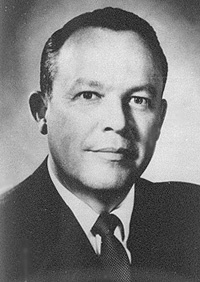
Richard Kleindienst was born in Winslow, Arizona, on August 5, 1923, and served in the U.S. Army Air Force during WWII. Kleindienst attended the University of Arizona before going to war, finishing his education with a B.A. magna cum laude from Harvard University and graduating from Harvard Law School in 1950.
He was a senior partner of Shimmel, Hill, Kleindienst and Bishop (1958-1969). Kleindienst was also a member of the Arizona state House of Representatives (1953-54), chair of the Arizona Republicans (1956-60, 1962-63), and on the Republican National Committee from Arizona (1956-60, 1962-63).
During the Nixon administration, he was the deputy U.S. attorney general (1969-1972) and the U.S. attorney general (1972-73). Richard G. Kleindienst died of lung cancer on February 3, 2000.
(Source: http://millercenter.org/president/nix...)
More:
http://www.justice.gov/ag/aghistpage....
http://en.wikipedia.org/wiki/Richard_...
 L. Patrick Gray:
L. Patrick Gray: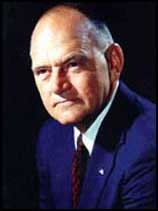
Louis Patrick Gray, III was born in St. Louis, Missouri on July 18, 1916. He attended schools in St. Louis and Houston, Texas. After attending Rice University for a period, Mr. Gray enrolled at the United States Naval Academy and received a Bachelor of Science degree in 1940. The Navy commissioned Mr. Gray as a line officer and he served throughout World War II and the Korean War.
In 1949, between his two tours of duty, Mr. Gray received a J.D. degree from George Washington University Law School. He was admitted to practice before the Washington D.C. Bar in 1949; later he was admitted to practice law by the Connecticut State Bar, the United States Military Court of Appeals, the United States Court of Appeals, the United States Court of Claims, and the United States Supreme Court. After retiring from the Navy in 1960 with the rank of Captain, Mr. Gray served as military assistant to the Chairman of the Joint Chiefs of Staff. In 1961, he entered private practice.
In the late 1960s, Mr. Gray returned to the federal government and worked in the Nixon administration in several different positions. In 1970, President Nixon appointed Mr. Gray as assistant attorney general for the Civil Division in the Department of Justice. In 1972, Mr. Gray was appointed deputy attorney general, but before he could be confirmed by the full Senate, his nomination was withdrawn. Instead, President Nixon designated him as Acting Director of the FBI. Gray served in this position for less than a year.
(Source: http://www.fbi.gov/about-us/history/d...)
More:
http://en.wikipedia.org/wiki/L._Patri...
http://seattletimes.nwsource.com/html...
http://www.nytimes.com/2005/06/27/pol...
 L. Patrick Gray III
L. Patrick Gray III
 George Wallace:
George Wallace:
Born in Alabama in 1919, Alabama governor George Wallace entered the national spotlight during the civil rights battles of the 1960s by vehemently opposing the federally mandated integration of Alabama schools. He stayed active in politics until the 1980s and later renounced his segregationist ideology.
More:
http://www.archives.state.al.us/govs_...
http://en.wikipedia.org/wiki/George_W...
http://thecontenders.c-span.org/Conte...
http://www.spartacus.schoolnet.co.uk/...
 Stephan Lesher
Stephan Lesher
 Arthur Bremer:
Arthur Bremer: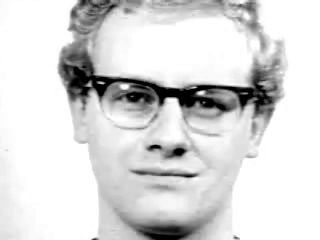
was an American convicted for an assassination attempt on U.S. Democratic presidential candidate George Wallace on May 15, 1972 in Laurel, Maryland, leaving him paralyzed from the waist down for the rest of his life. Bremer was found guilty and sentenced to 63 years (53 years after an appeal) in a Maryland prison for the shooting of Wallace and three bystanders.
After 35 years of incarceration, Bremer was released from prison on November 9, 2007.
More:
http://en.wikipedia.org/wiki/Arthur_B...
http://www.pbs.org/wgbh/amex/wallace/...
 E. Howard Hunt:
E. Howard Hunt: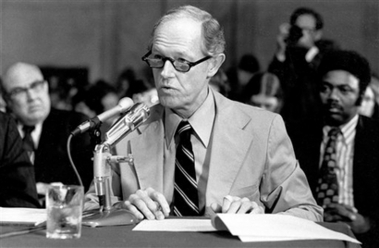
CIA officer best known for helping to organize the Watergate break-in. Also an organizer of both a Guatemalan coup and the Bay of Pigs invasion, and author of more than 80 books, most of them were of the spy-tale genre.
More:
http://en.wikipedia.org/wiki/E._Howar...
http://www.washingtonpost.com/wp-srv/...
 James McCord:
James McCord: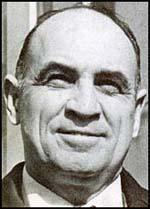
James W. McCord was one of the first of the president's men to take the fall for Watergate. After leaving the infamous piece of tape on a door in the Watergate building that alerted a security guard to the break-in, he was arrested the night of the burglary along with the four other men, pleaded guilty, and was convicted on six counts. However, he later wrote a letter to Judge John J. Sirica claiming that the defendants had pleaded guilty under pressure (from John Dean and John Mitchell, among others) and that perjury had been committed. McCord's allegations that the White House knew of the burglary and attempt to cover it up were crucial in causing investigators to push further.
McCord was the security director of the Committee for the Reelection of the President at the time and had formerly worked as an officer in the CIA and FBI. After retiring from the CIA, he operated his own security consulting firm in Rockville, McCord Associates, and secured a contract to provide security to the Republican National Committee. He was also a lieutenant colonel in the Air Force Reserve. In 1974 he published a book entitled, "A Piece of Tape -- The Watergate Story: Fact and Fiction."
McCord lives in Rockville, Md.
(Source: http://www.washingtonpost.com/wp-srv/...)
More:
http://en.wikipedia.org/wiki/James_W.....
http://www.spartacus.schoolnet.co.uk/...
 Welcome, Jennifer. Glad you could join us.
Welcome, Jennifer. Glad you could join us.Please take a moment to familiarize yourself with the "add book/author" feature when you are ready to cite a book. (There is a link on the top right of the reply box.) It makes things so much easier for people to see your book recommendations, because they can see the cover and the links to the author. And it helps the Goodreads software connect books with groups that talk about them. When citing a book and/or author, please put the book cover, author's photo and author's link at the very bottom of the post after your text. Because it is on the bottom, it calls the reader's attention to the book/author and increases the readability of your posts.
This is how the books you've mentioned should look:

 James M. McPherson
James M. McPhersonMore information:
http://www.goodreads.com/topic/show/2...
Take a few moments to read the orientation:
http://www.goodreads.com/topic/show/1...
And our guidelines:
http://www.goodreads.com/topic/show/5...
If you have any questions, don't hesitate to ask us moderators. I look forward to your postings.
 Black September:
Black September:The Black September Organization (BSO) was formed in 1971 as a clandestine wing of al-Fatah. BSO was founded with the objective to avenge the expulsion of the Palestine Liberation Organization (PLO) from Jordan in September of 1970. This time was referred to as "Black September," hence the name chosen by the Black September Organization. While Black September was originally described as a splinter group of al-Fatah, direct linkages between the groups were revealed with the arrests of BSO agents. Al-Fatah formed Black September in order to circumvent an al-Fatah declaration that they would not interfere in the domestic policies of Arab nations. However, some al-Fatah members planned to assassinate King Hussein, ruler of Jordan from 1953 to 1999. Hence, Black September was partially formed in order to pursue this specific objective.
While Black September failed several times to assassinate King Hussein, the group is notorious for a number of brutal, high-profile terrorist incidents. Black September expanded their list of targets from the Jordanian government to include Israeli and U.S. citizens and facilities. The group also carried out attacks against general "Western" targets. Black September is infamous for its attack against Israeli athletes and coaches at the 1972 Munich Olympics. In retaliation for the attacks against Israel citizens and facilities, Israel launched a significant response to eliminate the terrorist organization. Israeli security forces retaliated against BSO terrorists in Western Europe and Lebanon. Following the Israeli response, al-Fatah dissolved Black September in December 1974.
(Source: http://www.start.umd.edu/start/data_c...)
More:
http://en.wikipedia.org/wiki/Black_Se...
http://middleeast.about.com/od/terror...
 Yosef Alon:
Yosef Alon:was an Israeli Air Force officer who was mysteriously shot and killed in the driveway of his home in Maryland.
More:
http://en.wikipedia.org/wiki/Yosef_Alon
 Roman Hruska:
Roman Hruska: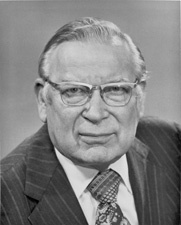
a Representative and a Senator from Nebraska; born in David City, Butler County, Nebr., August 16, 1904; attended the public schools, the University of Omaha, and the University of Chicago Law School; graduated from Creighton University College of Law, Omaha, Nebr., in 1929; admitted to the bar in 1929 and commenced practice in Omaha, Nebr.; member of Board of Douglas County Commissioners 1944-1952, chairman 1945-1952; member of Advisory Committee to Nebraska Board of Control 1947-1952; president Nebraska Association of County Officials 1950-1951; vice president of National Association of County Officials 1951-1952; vice chairman of Nebraska Civil Defense 1951-1952; member of Board of Regents of the University of Omaha 1950-1957; elected as a Republican to the Eighty-third Congress and served from January 3, 1953, until his resignation November 8, 1954, having been elected to the United States Senate, November 2, 1954, to fill the vacancy caused by the death of Hugh Butler; assumed office November 8, 1954; reelected in 1958, 1964, and again in 1970 and served from November 8, 1954, until his resignation December 27, 1976; was not a candidate for reelection in 1976; was a resident of Omaha, Nebr. until his death on April 25, 1999, due to complications from a broken hip following a fall; interment at Bohemian Cemetery.
(Source: http://bioguide.congress.gov/scripts/...)
More:
http://en.wikipedia.org/wiki/Roman_Hr...
 Robert Byrd:
Robert Byrd: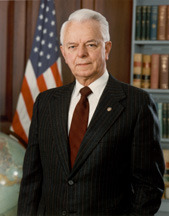
a Representative and a Senator from West Virginia; born in North Wilkesboro, Wilkes County, N.C., November 20, 1917; attended West Virginia public schools; student at Beckley College, Concord College, Morris Harvey College, and Marshall College, all in West Virginia, and George Washington University Law School, Washington, D.C.; graduated, American University Law School 1963; received Bachelor’s degree in political science from Marshall University 1994; member of the West Virginia house of delegates 1947-1950; member of the West Virginia senate 1951-1952, resigning when elected to Congress; elected as a Democrat to the Eighty-third, Eighty-fourth, and Eighty-fifth Congresses (January 3, 1953-January 3, 1959); elected as a Democrat to the United States Senate in 1958 for the term commencing January 3, 1959, and served from January 3, 1959, until his death; reelected in 1964, 1970, 1976, 1982, 1988, 1994, 2000, and again in 2006 for the term ending January 3, 2013; Secretary, Senate Democratic Conference 1967-1971; Democratic whip 1971-1977; Majority Leader 1977-1980, 1987-1988; Minority Leader 1981-1986; President pro tempore (1989-1995, June 6, 2001-January 3, 2003, 2007-June 28, 2010); chair, Committee on Appropriations (One Hundred First through One Hundred Third Congresses; One Hundred Seventh Congress [January 3-20, 2001; June 6, 2001-January 3, 2003]; One Hundred Tenth Congress); died June 28, 2010; lay in repose in the Senate Chamber July 1, 2010; interment in Columbia Gardens Cemetery, Arlington, Va.
(Source: http://bioguide.congress.gov/scripts/...)
More:
http://en.wikipedia.org/wiki/Robert_Byrd

 Robert C. Byrd
Robert C. Byrd
 William D. Ruckelhaus:
William D. Ruckelhaus: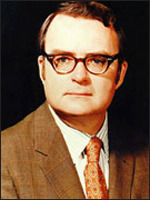
William D. Ruckelshaus is currently a Strategic Director in the Madrona Venture Group, formed in 1999 and a principal in Madrona Investment Group, L.L.C. (MIG), a Seattle based investment company, form in 1996. He was Chairman/CEO of Browning-Ferris Industries from 1988 to 1995 and Chairman from 1995 to 1999.
Born in Indianapolis, Indiana on July 24, 1932, Mr. Ruckelshaus graduated cum laude from Princeton University in 1957 with a Bachelor of Arts degree and obtained his law degree from Harvard University in 1960. He began a career in law with the Indianapolis firm of Ruckelshaus, Bobbitt and O'Connor in 1960 and was associated with the firm for eight years. In addition, he was Deputy Attorney General of Indiana from 1960 through 1965. He was a member of the Indiana House of Representatives and its majority leader from 1967 to 1969. The President appointed him for the years of 1969 and 1970 as Assistant Attorney General in charge of the Civil Division for the U.S. Department of Justice.
Mr. Ruckelshaus became the United States Environmental Protection Agency's first Administrator when the agency was formed in December 1970, where he served until April 1973. In April 1973 he was appointed acting Director of the Federal Bureau of Investigation, and in the same year was appointed Deputy Attorney General of the United State Department of Justice.
From 1974 through 1976, Mr. Ruckelshaus was a senior partner in the Washington, DC law firm of Ruckelshaus Beveridge & Fairbanks. He joined Weyerhaeuser Company in Tacoma, Washington as Senior Vice President for Law and Corporate Affairs from 1976 to 1983 and was responsible for policy setting and coordination of the company's key external relationships and its legal service functions. In 1983, Mr. Ruckelshaus was appointed by President Reagan as the fifth EPA Administrator until 1985. He served until joining Perkins Coie in 1985, a Seattle based law firm.
He was formerly on the boards of Isilon Systems, Weyerhaeuser Company, Nordstrom, Inc., Cummins Engine Company, Monsanto Company, Solutia, Inc., Pfizer, Inc., Coinstar, Inc., Pharmacia Corporation and the Energy Foundation. He is the founding Director and Board member of the Initiative for Global Development and Chairs the William D. Ruckelshaus Center. He is a Board Emeritus member of the World Resources Institute and the University of Wyoming, Ruckelshaus Center. From July 1997 to July 1998, President Clinton appointed him as the U.S. envoy in the implementing of the Pacific Salmon Treaty and in 1999 he was appointed by Governor Gary Locke as the Chairman of the Salmon Recovery Funding Board for the State of Washington and in May, 2007 appointed by Governor Christine Gregoire as Chairman of the Leadership Council of the Puget Sound Partnership. In June 2001, he was appointed by President Bush as a member of the Commission on Ocean policy which was created by Congress in 2000.
Mr. Ruckelshaus and his wife, Jill, reside in Seattle, Washington. They have five children and 12 grandchildren.
(Source: http://www.ruckelshauscenter.wsu.edu/...)
More:
http://en.wikipedia.org/wiki/William_...
http://www.fbi.gov/about-us/history/d...
 Clarence M. Kelley:
Clarence M. Kelley: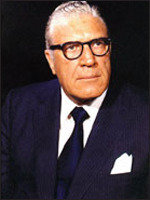
Mr. Kelley was born on October 24, 1911 in Kansas City, Missouri. In 1936, he received a Bachelor of Arts degree from the University of Kansas and an LL.B. degree from the University of Kansas City, Missouri in 1940. He was also admitted to the Missouri Bar in 1940.
Mr. Kelley entered on duty with the FBI as a special agent on October 7, 1940. He gained extensive experience in many important fields of investigative activity early in his FBI career while he served in field offices in Huntington, West Virginia; Pittsburgh, Pennsylvania; Des Moines, Iowa; and the FBI Training Center, Quantico, Virginia, as a firearms instructor.
He was on military leave from the FBI while serving in the United States Navy from July 22, 1944 to April 9, 1946. Mr. Kelley’s service in the Navy included a tour of duty aboard a transport attack ship in the South Pacific.
Mr. Kelley’s first assignment after his return from military service during 1946 was in the Kansas City office. Based on his outstanding ability and performance, he was assigned supervisory duties at FBI Headquarters in Washington, D.C. in 1951. Later that same year, Mr. Kelley returned to the Kansas City Division as a field supervisor.
During July 1953, he was transferred to the Houston office where he served as assistant special agent in charge until July 1955, when he was assigned to the Seattle office in the same capacity. In August 1956, Mr. Kelley was moved to the San Francisco Field Office, where he continued his service as assistant special in charge until July 1957.
Following his assignment in San Francisco, Mr. Kelley was transferred to the Training and Inspection Division at FBI Headquarters and shortly thereafter he was designated as an inspector.
In December 1957, Mr. Kelley was given the assignment of special agent in charge of the Birmingham office and in November 1960, he was reassigned to the Memphis office in the same capacity. He served as special agent in charge of the Memphis office until his retirement from the FBI on October 24, 1961.
After his retirement, Mr. Kelley became the Chief of Police in Kansas City, Missouri. During the time he held this position, he was on the Board of Directors of the Boys’ Club and the United Fund. He also held membership in the Society of Former Special Agents of the Federal Bureau of Investigation; the Chamber of Commerce; and Rotary International. Mr. Kelley was also on the Executive Committee of the International Association of Chiefs of Police and was a member of both the Missouri Chiefs of Police Association and the Tennessee and Mississippi Peace Officers Association. He is a past president of the Missouri Peace Officers Association.
In 1970, he received the J. Edgar Hoover Gold Medal for Outstanding Job Service, presented by the Veterans of Foreign Wars. He was named to the Presidential Advisory Committee, which was headed by former Director Hoover in 1971. Mr. Kelley, in 1972, received the Outstanding Officer of the Year Award, presented by the Metropolitan Chiefs and Sheriffs Association. In addition, Mr. Kelley served on the National Advisory Commission on Criminal Justice Standards and Goals and on the FBI National Academy Review Committee, both during the period 1972-1973. He served as chairman of the Florida Governor’s Task Force to Evaluate Public Safety and Related Support Services at the 1972 National Political Convention.
Mr. Kelley was nominated by President Nixon on June 7, 1973 as Director of the FBI. The United States Senate confirmed the President’s nomination of Mr. Kelley on June, 27, 1973. He was sworn in as Director of the FBI in Kansas City, Missouri on July 9, 1973.
After assuming the directorship of the FBI, he received numerous honors and awards: the Alumnus of the Year of the Kansas City School of Law at the University of Missouri; the 17th Annual Award from the Society of Professional Investigators; Honorary Trustee of the Boys’ Club of Greater Washington; and Honorary Doctor of Laws Degrees from Baker University, Baldwin City, Kansas; and, Culver-Stockton College, Canton, Missouri.
He became a Life Elder of his church, Country Club Christian Church, Kansas City on May 4, 1975. On December 17, 1975, Mr. Kelley was elected to the Board of Directors of the Menorah Medical Center Foundation in Kansas City, Missouri. In April 1976, he was elected to a five-year term as Advisory Trustee of the University of Missouri - Kansas City Law Foundation.
Mr. Kelley received the Harry S. Truman Commemorative Good Neighbor Award in May 1976 from the Eddie Jacobson Memorial Foundation in Kansas City, Missouri. He participated in the John Findley Green Lecture Series at Westminister College in Fulton, Missouri in May, 1976, and on that occasion an honorary Doctor of Political Science Degree was conferred upon him.
(Source: http://www.fbi.gov/about-us/history/d...)
More:
http://en.wikipedia.org/wiki/Clarence...
 Archibald Cox:
Archibald Cox: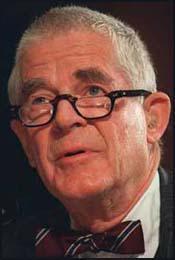
was an American lawyer and law professor who served as U.S. Solicitor General under President John F. Kennedy. He became known as the first special prosecutor for the Watergate scandal. During his career, he was a pioneering expert on labor law and also an authority on constitutional law.
More:
http://www.spartacus.schoolnet.co.uk/...
http://en.wikipedia.org/wiki/Archibal...
 Saturday Night Massacre:
Saturday Night Massacre:was the term given by political commentators[1] to U.S. President Richard Nixon's executive dismissal of independent special prosecutor Archibald Cox, and the resignations of Attorney General Elliot Richardson and Deputy Attorney General William Ruckelshaus on October 20, 1973 during the Watergate scandal
More:
http://en.wikipedia.org/wiki/Saturday...
http://www.washingtonpost.com/wp-srv/...
http://www.pbs.org/wgbh/americanexper...
 William Saxbe:
William Saxbe:
William Bart Saxbe was born June 24, 1916, in Mechanicsburg, Ohio. He earned an A.B. (1940) and an LL.B. (1948) from Ohio State University. He served the U.S. Army from 1940 to 1945 and from 1951 to 1952. Saxbe's political career began in the Ohio State House of Representatives, where he served from 1947 to 1954; he went on to become Ohio attorney general (1957-1958, 1963-1968). In 1968, he was elected as a Republican to the U.S. Senate, serving there until 1974.
He resigned in 1974 to become U.S. Attorney General for President Richard Nixon. He continued in that position in the administration of Gerald Ford until 1975, when he became the first person to resign from the Ford cabinet. He then served as U.S. ambassador to India until 1977, returning to law practice in Mechanicsburg thereafter.
(Source: http://millercenter.org/president/nix...)
More:
http://en.wikipedia.org/wiki/William_...
http://bioguide.congress.gov/scripts/...
http://www.justice.gov/ag/aghistpage....
 William B. Saxbe
William B. Saxbe
 FALN:
FALN:was a Puerto Rican clandestine paramilitary organization that, through direct action, advocated complete independence for Puerto Rico. At the time of its dissolution, the FALN was responsible for more than 120 bomb attacks on United States targets between 1974 and 1983. The United States Federal Bureau of Investigation (FBI) classifies the FALN as a terrorist organization.
More:
http://en.wikipedia.org/wiki/Fuerzas_...
http://www.latinamericanstudies.org/f...
 Hoover Building:
Hoover Building:
is located in Washington, D.C. It is the headquarters of the Federal Bureau of Investigation (FBI). The building, named for former FBI director J. Edgar Hoover, is located at 935 Pennsylvania Avenue NW. The building received its official name, the J. Edgar Hoover F.B.I. Building, through Public Law 92-520, which President Richard Nixon signed May 4, 1972, two days after Director Hoover's death.
More:
http://en.wikipedia.org/wiki/J._Edgar...
 Robert Drinan:
Robert Drinan: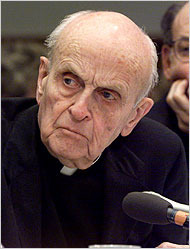
a Representative from Massachusetts; born in Boston, Mass., November 15, 1920; attended the public schools of Hyde Park, Mass.; A.B., M.A., Boston College, 1942; entered the Jesuit Order, 1942, and was ordained a Catholic priest, 1953; LL.B., LL.M., Georgetown University Law Center, Washington, D.C., 1950; admitted to the Massachusetts bar in 1956; dean, Boston College Law School, 1956-1970; professor of family law and church-state relations; visiting professor, University of Texas Law School, 1966-1967; professor, Georgetown University Law Center, 1981- 2007; vice president, Massachusetts Bar Association, 1961-1964; author and editor; lecturer on church-state relations, Andover Newton Theological Seminary, Newton, Mass., 1966, 1968; chairman, Advisory Committee for Massachusetts to United States Commission on Civil Rights, 1962-1971; member, Governor’s commission to study conflict of interests, 1962; Griswold commission to study judicial salaries, 1962; member, Massachusetts Attorney General’s Committee on Civil Rights and Civil Liberties; delegate to Massachusetts State Democratic convention, 1972; delegate to Democratic National Convention, 1972; elected as a Democrat to the Ninety-second and to the four succeeding Congresses (January 3, 1971-January 3, 1981); was not a candidate for reelection in 1980 to the Ninety-seventh Congress; died on January 28, 2007, in Washington, D.C.
(Source: http://bioguide.congress.gov/scripts/...)
More:
http://en.wikipedia.org/wiki/Robert_D...
http://www.bc.edu/bc_org/rvp/pubaf/07...
 Raymond Schroth
Raymond Schroth
 Edward Levi:
Edward Levi:
Edward Hirsh Levi was born in Chicago, Illinois, on June 26, 1911. He received his Ph.D. in 1932 and his J.D. in 1935 from the University of Chicago. He received a J.D. degree from Yale University in 1938, where he had been a Sterling Fellow from 1935 to 1936. Levi became an assistant professor of law at the University of Chicago (1936-1940, 1945-1950). He later became dean of the Law School in 1950, provost of the University (1962), and president of the University of Chicago from 1968 to 1975.
He took a leave of absence from the University of Chicago during World War II to be a special assistant to the attorney general (1940-1945), serving in the Antitrust Division of the Department of Justice as head of its Consent Decree Division. In 1943, he served as the first assistant in the Justice Department's War Division. He was also chairman of the Interdepartmental Committee on Monopolies and Cartels in 1944.
During his academic career, he served in a number of capacities, including chief counsel to the Subcommittee on Monopoly Power of the House Judiciary Committee (1950), member of the White House Central Group on Domestic Affairs (1964), and member of the White House Task Force on Education (1966-1967). During the Richard Nixon administration, Levi was on the President's Task Force on Priorities in Higher Education from 1969 to 1970 and was a member of the National Commission on Productivity and the National Council on the Humanities.
President Gerald Ford appointed Levi as the nation's 71st Attorney General on February 7, 1975, to replace William Saxbe. While at Justice, Levi spearheaded new guidelines for the Federal Bureau of Investigation (FBI), and vigorously prosecuted antitrust cases. Levi also worked closely with President Ford in establishing the administration's response to the busing crisis, particularly in the city of Boston.
After his service in the Ford administration, Levi returned to the University of Chicago. He died in 2000 of complications due to Alzheimer's disease.
(Source: http://millercenter.org/president/for...)
More:
http://www.justice.gov/ag/aghistpage....
http://en.wikipedia.org/wiki/Edward_H...
Books mentioned in this topic
War by Other Means: An Insider's Account of the War on Terror (other topics)Against All Enemies : Inside America's War on Terror (other topics)
At the Center of the Storm: My Years at the CIA (other topics)
Mastermind: The Many Faces of the 9/11 Architect, Khalid Shaikh Mohammed (other topics)
In the Fullness of Life: A Biography of Dorothy Kazel, O.S.U. (other topics)
More...
Authors mentioned in this topic
John Yoo (other topics)Richard A. Clarke (other topics)
George Tenet (other topics)
Richard Miniter (other topics)
Cynthia Glavac (other topics)
More...




was an American political figure and longtime top aide to U.S. President Lyndon B. Johnson. Jenkins' career ended after a sex scandal was reported weeks before the 1964 presidential election, when Jenkins was arrested and charged with disorderly conduct with another man in a public restroom in Washington, D.C.
More:
http://en.wikipedia.org/wiki/Walter_J...
http://www.cnn.com/ALLPOLITICS/storie...